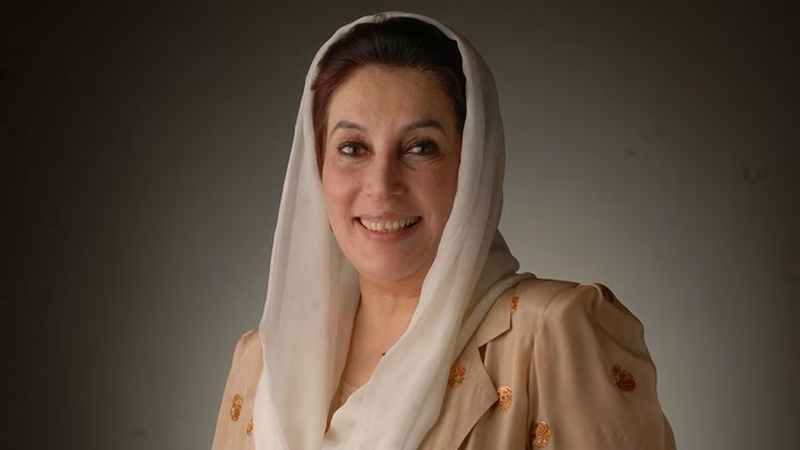Today marks the 71st birth anniversary of Benazir Bhutto, the martyred chairperson of the Pakistan Peoples Party (PPP) and former Prime Minister of Pakistan. Born on June 21, 1953, in Karachi, Bhutto was a trailblazing figure in both national and international politics, much like her father, Zulfikar Ali Bhutto.
Bhutto’s academic journey took her from Radcliffe College and Harvard University to Oxford University, where she earned degrees in political science, economics, and philosophy. Her early political career was marked by significant challenges, including the overthrow of her father’s government and the subsequent imposition of martial law, which forced her into exile. Despite these hardships, Bhutto remained committed to her democratic ideals.
Returning to Pakistan in April 1986, Bhutto was met with an unprecedented welcome. Her resilience and leadership were soon rewarded when the PPP emerged victorious in the 1988 elections, making her the first female Prime Minister of the Muslim world. However, her first term was cut short after just 18 months.
In November 1993, Bhutto was elected Prime Minister for a second time, but her tenure ended in 1996 when the President, a PPP appointee, dismissed her government. During her time in office, Bhutto made significant strides in empowering women and implementing progressive reforms.
After facing alleged retaliatory actions, Bhutto went into exile once more. Undeterred, she announced her return to Pakistan in 2007, despite threats to her life. Her return on October 18, 2007, was marked by a tragic attack that she survived. However, on December 27, 2007, after a rally in Liaquat Bagh, Rawalpindi, Bhutto was assassinated, a loss that resonated deeply within Pakistan and around the world.
As Pakistan commemorates Benazir Bhutto’s 71st birthday, her legacy as a courageous leader and a champion of democracy continues to inspire. Her contributions to the political landscape and her efforts to empower women remain integral to her enduring legacy.











Leave a Reply